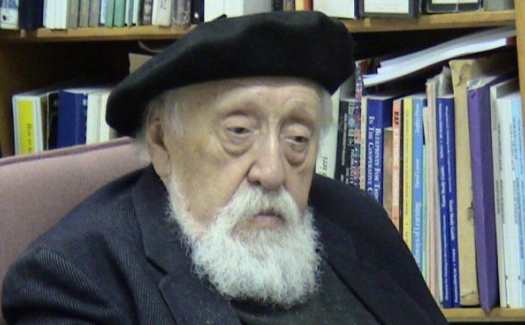
Remembering Prof. Reuven Feuerstein, 93
Professor Reuven Feuerstein, a world-renowned clinical and developmental cognitive psychologist who received the Israel Prize in 1992, passed away on April 29 in Jerusalem. He was 93 years old.
Born and educated in Romania, he escaped Europe during World War II to British Mandate Palestine. There, he worked with child Holocaust survivors, eventually beginning his career studying the needs of refugee children.
Feuerstein completed his general and clinical psychology degrees, which were interrupted because of the war, at the University of Geneva, where he at one time studied under Jean Piaget, the Swiss psychologist and philosopher famous for his cognitive development work with children. Feuerstein later worked as director of psychological services for Youth Aliyah in Europe.
In 1970, he earned his Ph.D. in developmental psychology at the Sorbonne in Paris.
In 2012, he was nominated for the Nobel Peace Prize for his work with children, and in particular, with developmentally disabled children and adults around the world.
According to the Feuerstein Institute, of which he was founder and active leader until his passing, his theories and applied systems have been implemented in both clinical and classroom settings for more than 50 years and in 80 different countries. The institute is an international education, treatment and research center.
Feuerstein’s theory on the malleability of intelligence has led to more than 2,000 scientific research studies and countless case studies with various populations. His methods have found their way from Israel to the Amazon, to Rwanda and to the Inuit of Canada.
In a video interview from Jewish Educational Media’s “Living Torah” series, Feuerstein discussed the influence of the Rebbe, Rabbi Menachem M. Schneerson, of righteous memory, on his life’s work.
Prior to the application of his theories, it was assumed that many developmentally challenged children and even adults could not possibly overcome their limitations. Feuerstein recalled he was often challenged: “How do your dare tell people that this child will ever be able to speak? … To be able to read, to finish school, to go toyeshivah?” he was asked.
“Much of this belief, much of this power of belief, came from my interactions with the Rebbe,” said Feuerstein.











Chana
Je hais helped m’y daugter tremendously Thank to Dr Feurstein she was able to go to a regular School
reader
video does not work
jw freind
http://www.chabad.org/therebbe/livingtorah/player_cdo/aid/1744439/jewish/Never-Give-Up-On-a-G-dly-Spark.htm
jw freind
http://www.chabad.org/therebbe/livingtorah/player_cdo/aid/1161509/jewish/Easier-in-Israel.htm
Wrong Place
There was an article in Kefar Chabad about him a few years ago.